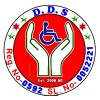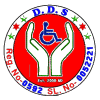DDS Soft Skill Training Program
Empowering Persons with Disabilities Through Personal and Professional Growth
The Disabled Development Society (DDS) recognizes that building technical ability alone is not enough to ensure long-term success for persons with disabilities. To foster greater inclusion and self-reliance, DDS implements the Soft Skill Training Program—an initiative aimed at equipping disabled individuals with the interpersonal, cognitive, and communication skills necessary for personal development, workplace readiness, and leadership.
Program Objectives
The primary goal of DDS’s Soft Skill Training is to enhance the capacity of disabled persons to engage confidently in education, employment, social interaction, and community leadership. These trainings help bridge the often-overlooked gap between hard skills and real-world success.
Key Soft Skills Covered
- Communication Skills: Verbal and non-verbal communication, listening skills, and public speaking.
- Emotional Intelligence: Managing emotions, empathy, and building healthy relationships.
- Time Management and Goal Setting: Prioritizing tasks, planning, and setting achievable personal or professional goals.
- Problem-Solving and Critical Thinking: Analyzing challenges and making sound decisions.
- Teamwork and Collaboration: Working effectively in groups and understanding group dynamics.
- Workplace Etiquette: Professional behavior, punctuality, and personal presentation.
- Confidence and Self-Awareness: Building self-esteem and understanding personal strengths and limitations.
Target Groups
- Youth and adolescents with disabilities preparing for employment or higher education.
- Members of DDS Self-Help Groups seeking leadership roles.
- Women with disabilities aiming for empowerment and economic participation.
- Parents and caregivers of disabled persons to improve family-level communication and support.
Training Approach
- Interactive sessions including role-plays, group discussions, storytelling, and games.
- Peer mentoring and real-life scenario practice.
- Use of accessible training materials, visual aids, and adaptive techniques.
- Inclusive and barrier-free training environments.
Impact
Participants report increased confidence, better interaction in group settings, improved interview skills, and greater readiness for workplace integration. Many beneficiaries have gone on to secure jobs, lead advocacy groups, or start small businesses with the added support of these soft skills.

